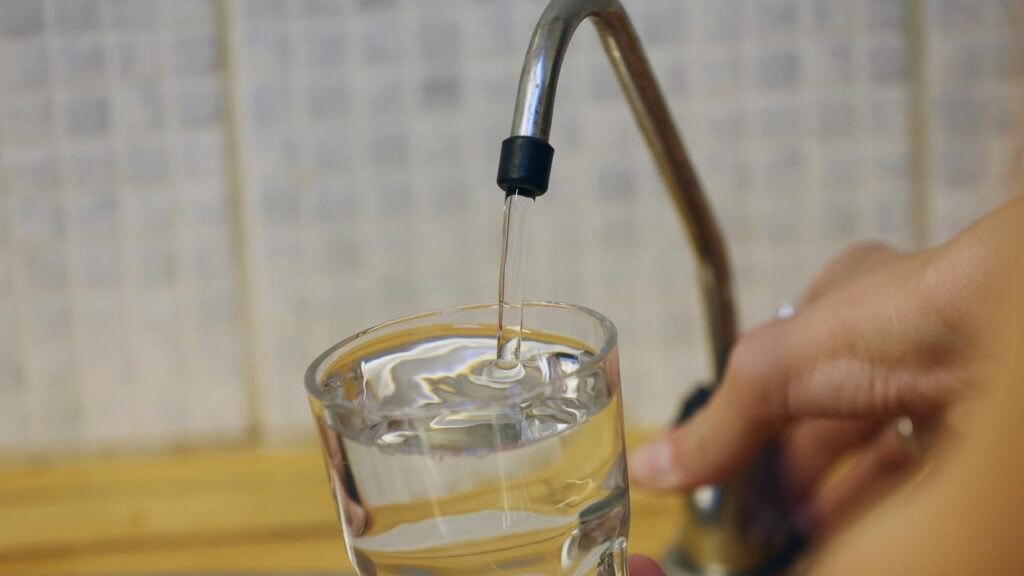Residents to pursue class action over ‘toxic tap water’
Samantha Lock and Farid Farid |

Residents in a tourist hotspot want free tests for cancer-causing “forever chemicals” in their blood after a major investigation revealed they had been drinking from a contaminated water supply for decades.
PFAS, or per- and polyfluoroalkyl substances, are a group of 15,000 highly toxic, synthetic chemicals resistant to heat, stains and grease, dubbed “forever chemicals” because of their inability to break down.
High-level contamination was detected in the drinking water catchment serving 30,000 people in the Blue Mountains in NSW in mid-2024.

PFAS levels were found to be about 300 times higher than Sydney’s main drinking water source but they still met Australian guidelines for safe drinking water.
An eight-month WaterNSW investigation released on Friday zeroed in on three potential sources of contamination, dating as far back as 33 years ago.
John Dee, a veteran environmental activist, described the fallout as an “Erin Brockovich-level scandal”.
He’s leading a group called Stop PFAS that will sue the NSW government and Sydney Water to get free PFAS blood testing for local residents and compensation for those affected.
“People in the Blue Mountains have been drinking toxic tap water for 32 years,” he told AAP.

Results of tests paid for by some residents have found PFAS in the bloodstream nearly 50 times the level considered safe by chemicals manufacturer 3M.
Local resident Nick A’hern had 46 nanograms per millilitre of PFAS, contained in firefighting foam and considered carcinogenic.
While the value of individual blood tests is debated among scientists, exposure to PFAS increases the risk of testicular and kidney cancer, affecting the immune system and causing developmental damage in children.
Mr A’hern has had prostate cancer while his wife has had bowel cancer and their 33-year-old son was diagnosed with testicular cancer.
“None of the cancers we’ve had have been in our family lineage,” he told AAP.
“It’s a pretty insane coincidence.
“All the kids used to swim in the dams and the water catchments. We just want to know if they’re safe.”

A spokesperson for Sydney Water said it would work with other agencies to ensure it met the proposed Australian Drinking Water Guidelines.
Health authorities say current drinking water meets existing guidelines and is safe to drink.
The WaterNSW investigation found contamination of two dams used for Blue Mountains’ drinking water may have occurred after separate motor vehicle accident sites on the Great Western Highway in 1992 and 2002 near the Medlow Bath township.
The town’s fire station was also a possible source of contamination.
Test samples at all three sites revealed the chemical compound signature consistent with the historical use of PFAS-containing fire-fighting foam, banned nationwide in 2007.
Medlow Dam and Greaves Creek Dam will remain disconnected from the water supply system until permanent mitigation measures are in place.
Steep terrain, potential PFAS spread over a wide geographical region and extensive disturbance of high-value ecological habitat are all flagged as barriers to remediation.
The report did not quantify the current rate of PFAS discharge from potential source areas in surface water and groundwater, nor the total mass of PFAS previously discharged.
Risks to human health and the environment from exposure to PFAS at the source areas have also not been quantified.

After community pressure, Sydney Water installed a $3.4 million mobile PFAS treatment plant at the Blue Mountains catchment in January.
University of Western Sydney water scientist Ian Wright accused water agencies of having “pretty average governance of water contamination”.
The National Health and Medical Research Council drafted new drinking water guidelines in October, reducing the benchmark for the PFOA group of chemicals.
AAP